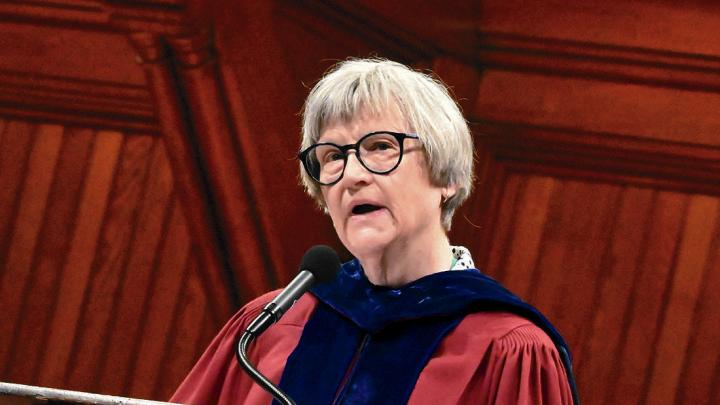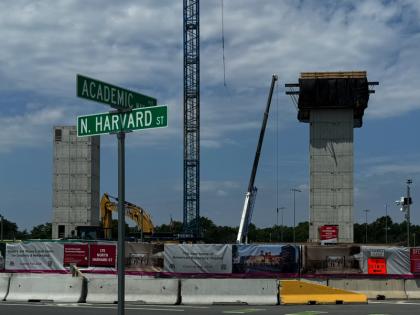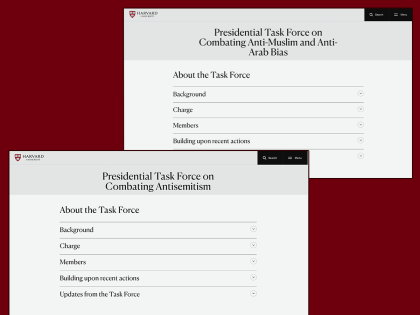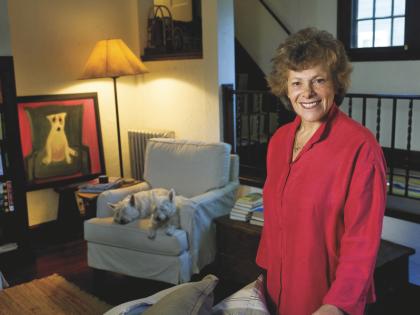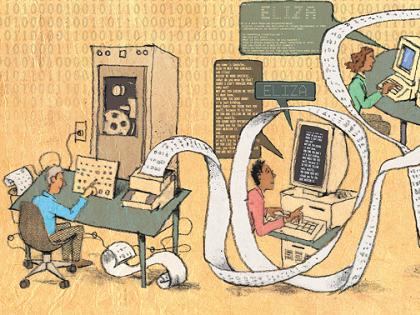“The Rule of Truth”
In a year of harsh attacks on higher education, and worrisome erosions of academic freedom, Drew Gilpin Faust, president emerita, focused her May 21 Phi Beta Kappa (PBK) oration on the values and worth of universities, and the threats posed by political critics pursuing other agendas. Channeling the most famous oration, Ralph Waldo Emerson’s “The American Scholar” (1837), Faust said, “A scholar must not be the ‘parrot of other men’s thinking.’ A scholar must be ‘free and brave.’” She observed:
“We in higher ed have been far from perfect.…Frank disagreement and respectful argument are an ideal, not, alas, always a reality.…I know from you and your classmates that you have sometimes found it challenging to express disagreement with what seemed to you prevailing views in classrooms or in dining halls. In recent months deeply felt divisions over a raging war have made maintaining a dedication to communicating across differences especially difficult. But I also know how so many of you have remained committed to rational and dispassionate exchange as you have listened to one another and reached for understanding.”
Such productive exchange is threatened with higher education under attack, she continued, speaking frankly as a president emerita: “We should not be permitting, and certainly not celebrating, a governor or a legislature or a member of Congress who is designing courses or degree requirements, hiring faculty, or proudly claiming responsibility for firing university presidents.”
Given the stakes, Faust concluded, “We who have been nurtured and shaped by universities, we who proudly embrace our identities as scholars ‘free and brave,’ must acknowledge, to borrow from that early PBK oration, both the ‘dangers’ and the ‘duties’ that lie ahead. We must be champions of the promise and purposes of higher education—of the ‘rule of truth’ that it stands for both inside and outside these gates.”
Read a full report and Faust’s address at harvardmag.com/phi-beta-kappa-24.
“We of Divergent Minds”
Leading his first baccalaureate, interim president Alan M. Garber that afternoon reflected on the truly difficult circumstances that fractured campuses and the wider world (leading in part to his present responsibilities):
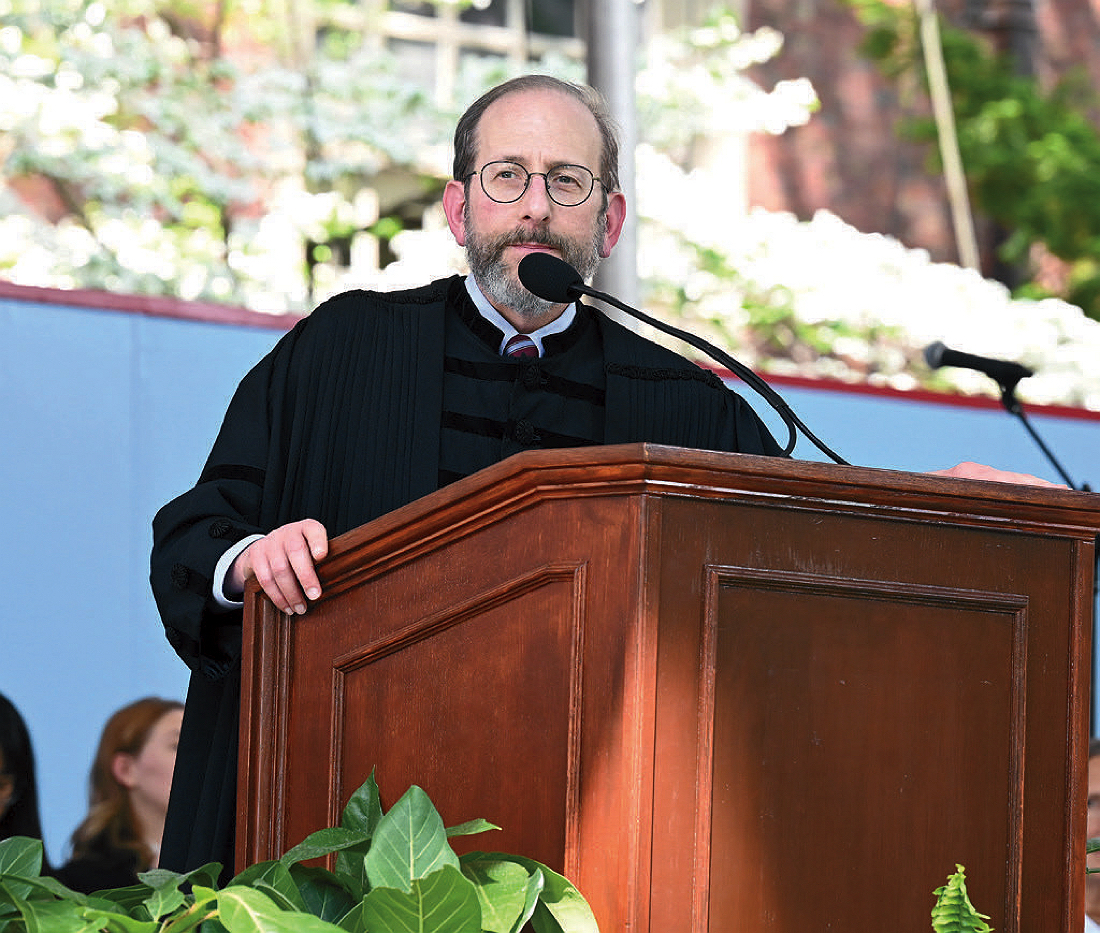
“This year, we have witnessed together incomprehensible death and destruction in the Middle East. We have experienced, directly and indirectly, grief and rage, fear and worry, skepticism and mistrust. The conflict has opened wounds throughout our community that will be slow—but not impossible—to heal.
“On Thursday, we of divergent minds will process together into this space, a space created not by gains—but by losses. Behind me, Memorial Church, dedicated on Armistice Day in 1932, built by our predecessors to honor those from Harvard who served and died in the first World War. Behind you, Widener Library, opened on Commencement Day in 1915, built by a grieving mother in memory of her beloved son.
“I hope we are able to heed the lessons of those who preceded us, those who chose to make from their sorrow something new, something that would last. May the losses of this year—of human life and of human connection—of sympathy and empathy—of care—be for all of you—for all of us—an impetus to advance rather than retreat, shining brightly in shadow, and brighter still through darkness.”
Access a complete report at harvardmag.com/baccalaureate-24.
“We Must Be Good”
What happens when the Harvard bubble bursts? Robert L. Clinton IV, J.D. ’24, the graduate English orator for the Commencement exercises, shared this perspective on the past year, and what follows:
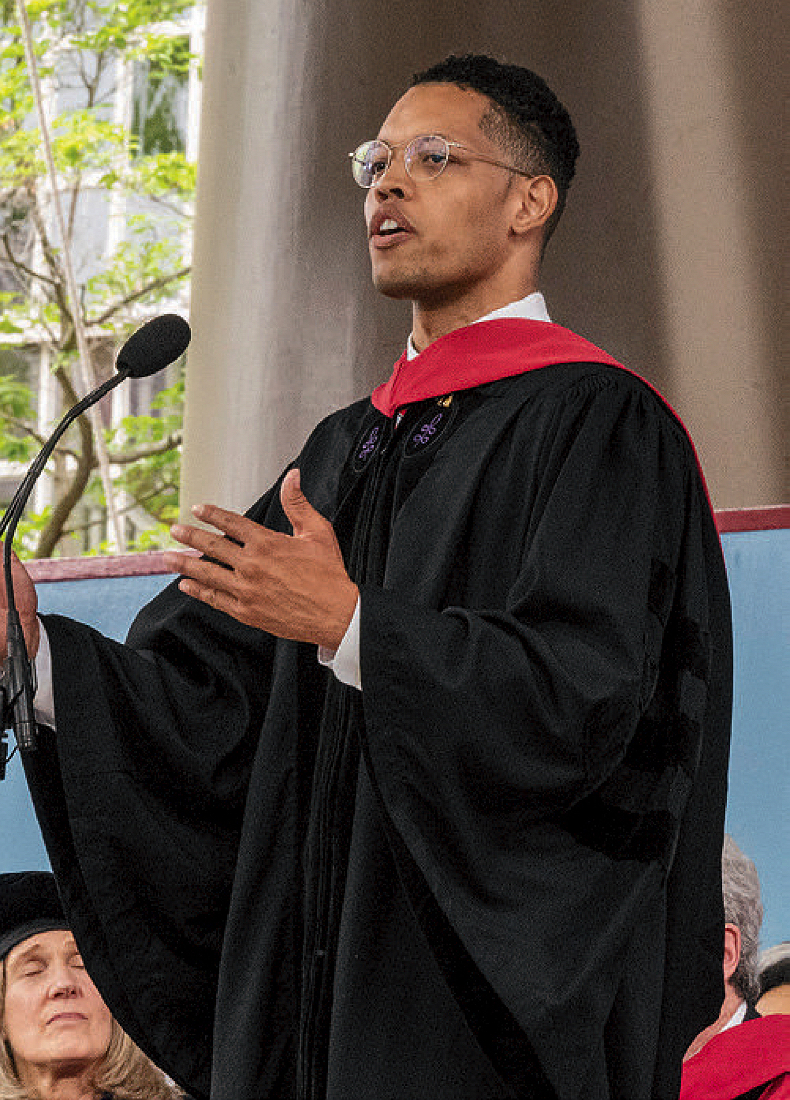
“I thought in our little bubble we would be safe, that Harvard was a shield, and that the things we are—well educated, hardworking, successful, even beautiful—would protect us from the problems of the world. But I was wrong.
“Now, our choice is to either be upset about our vulnerability, or to use it as a basis for connecting with others.…
“We are here, in part, because we have learned how to work incredibly hard, and because we know what it takes to be successful. But there is a difference between working hard and doing good, and there is a difference between being successful and being good.
“Being good can take many forms: Standing up to dictators. Being mentors. Using your Harvard network to help people who didn’t go here. Voting. Not being neutral, apathetic in the face of injustice.…
“[B]eing good means tapping into your own sense of vulnerability, and using it to pay attention, to connect with others. It means seeing yourself in other people’s struggles, even if they’re different from yours.…
“Today, and each day moving forward, we must do more than just work hard…more than just be perfectionist. We must make the affirmative choice to be good. Because not being good would be a waste of the privilege of having graduated from this beautiful and complicated place, Harvard.”
“To Regain Trust”
Maria A. Ressa’s focus, as throughout her recent career, was on the threats to democracy posed by corporate manipulation of information, the disappearance of credible news, and the destruction of social trust. As the core of that message, she told the graduates:
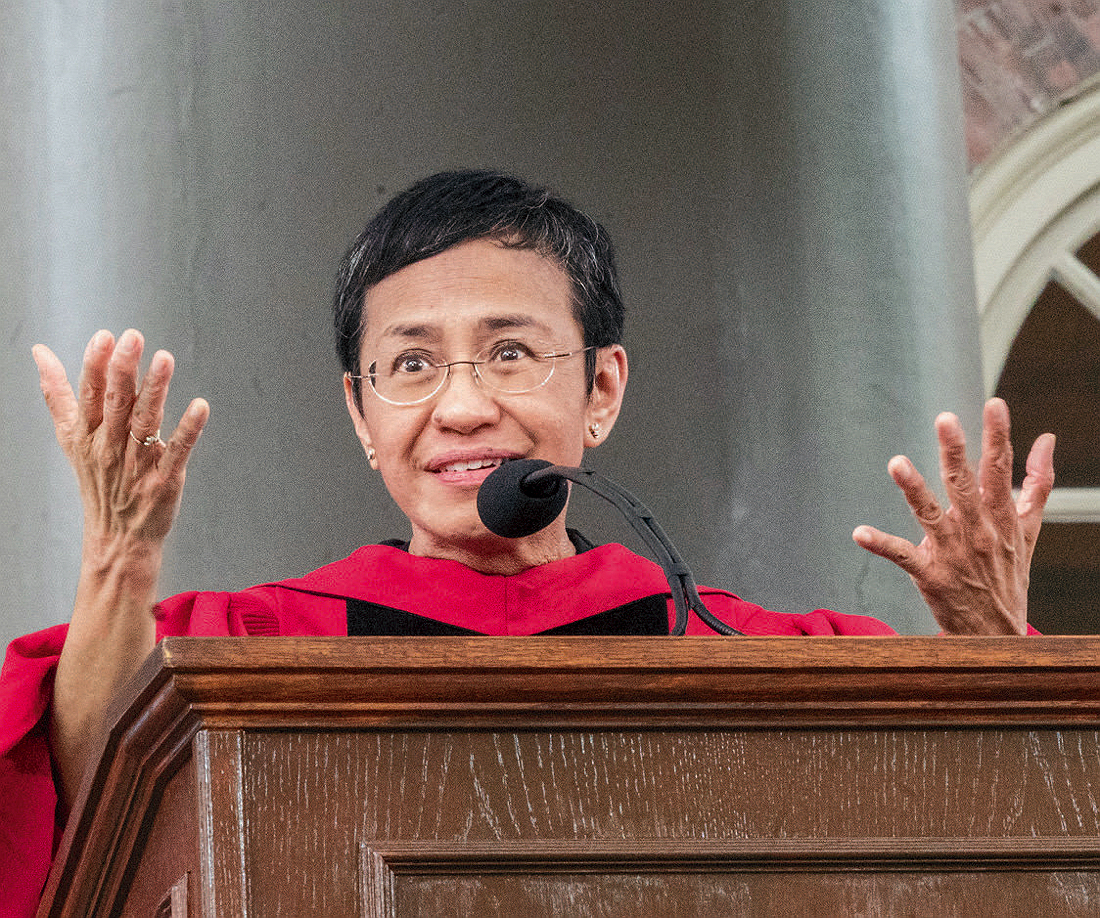
“[Y]ou’re standing on the rubble of the world that was. Recognize it. I said this in the Nobel lecture: An atom bomb exploded in our information ecosystem because social media turned our world upside down, spreading lies faster than facts while amplifying fear and anger, fueling hatred. By design. For profit.
“Whether it’s the AI of social media or generative AI, we don’t have integrity of facts…. Without facts, you can’t have truth. Without truth, you can’t have trust. Without these three, we have no shared reality, no rule of law, no democracy. We can’t begin to solve existential problems like climate change.
“This outrage economy—built on our data, microtargeting us—transformed our world, rewarding the worst of humanity. Online violence is real-world violence. And as you’ve pointed out, people are dying—from genocide in Myanmar, fueled by Facebook according to the UN and Meta itself—to Ukraine, Sudan, Haiti, Armenia, Gaza.
“The challenge today is whether our international rules-based order still works. Does it? The challenge is justice, core to our humanity. Too many powerful people are getting away with impunity—from countries to companies, and it is dividing us in ways that are literally destroying us…destroying democracy.
“Destroying TRUST.”
She exhorted, “The battle to regain trust begins now, with all of you. Harvard says it educates the ‘future leaders’ of the world. Well, if you future leaders don’t fight for democracy right now, there will be little left for you to lead.”
The Commencement speakers’ complete remarks are published at harvardmag.com/commencement-day-24.
